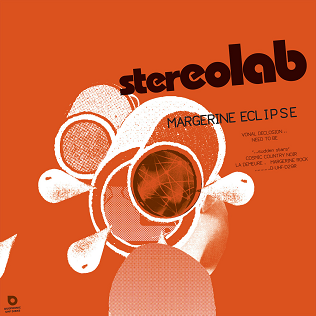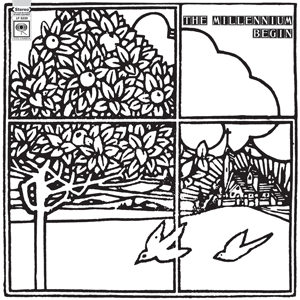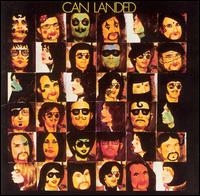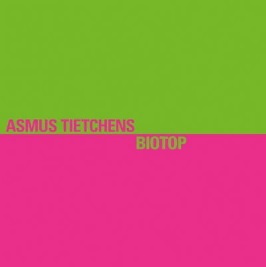
Maggot Brain is the third studio album by the American funk rock band Funkadelic, released by Westbound Records in July 1971. It was produced by bandleader George Clinton and recorded at United Sound Systems in Detroit during late 1970 and early 1971. The album was the final LP recorded by the original Funkadelic lineup; after its release, founding members Tawl Ross (guitar), Billy Nelson (bass), and Tiki Fulwood (drums) left the band for various reasons.

The Power to Believe is the thirteenth and final studio album by English progressive rock band King Crimson. It was released on 24 February 2003 in the United Kingdom and on 4 March 2003 in the United States through Sanctuary Records and met with generally favourable reviews, with several critics appreciating its heightened aggression. The Power to Believe was preceded by the EP Happy with What You Have to Be Happy With (2002), which features alternate and otherwise unreleased tracks.

Curtis Roy Boettcher, sometimes credited as Curt Boetcher or Curt Becher, was an American singer, songwriter, arranger, musician, and record producer from Wisconsin. He was a pivotal figure in what is now termed "sunshine pop", working with the Association, the Millennium, Sagittarius, Paul Revere and the Raiders, Tommy Roe, Elton John, Gene Clark, Emitt Rhodes, Tandyn Almer, the Beach Boys, and others.
Doug Rhodes is an American multi-instrumentalist who performed with 1960s rock bands the Music Machine and the Millennium.
The Millennium were an American sunshine pop band formed in Los Angeles, California, in 1967.
William George "Lee" Mallory was a singer, songwriter and guitarist who was part of bands including The Millennium and Sagittarius. His most successful single was a cover of the Phil Ochs/Bob Gibson song "That's the Way It's Gonna Be". The song, produced by Curt Boettcher, reached No. 86 on the charts and was a surprise hit in Seattle. A CD by the same name was released in 2002, with many songs and demos Mallory had recorded during the 1960s. Lee Mallory helped start the California Sound of the 1960s.

Subterranean Jungle is the seventh studio album by the American punk rock band Ramones, released by Sire Records on February 23, 1983. Overall, the album featured a return to a somewhat more hard punk rock style compared to the band's previous two albums End of the Century in 1980, and Pleasant Dreams in 1981, which were the most pop-focused of the band's career. This direction was encouraged by guitarist Johnny Ramone. The recording sessions saw disputes between band members, mainly due to struggles with alcohol addiction by Joey Ramone and Marky Ramone, and the drug addiction of Dee Dee Ramone.

Fly is the second album by Yoko Ono, released in 1971. A double album, it was co-produced by Ono and John Lennon. It peaked at No. 199 on the US charts.

Margerine Eclipse is the eighth studio album by English-French rock band Stereolab. It was released on 27 January 2004 in the United States by Elektra Records and on 2 February 2004 in the United Kingdom by Duophonic Records. The album is in large part a eulogy to former band member Mary Hansen, who died in 2002.
Michael Fennelly is an American musician known for his work as a singer and songwriter in the 1960s and 1970s, notably in The Millennium and Crabby Appleton.

Yellow Submarine is the tenth studio album by the English rock band the Beatles, released in January 1969. It is the soundtrack to the animated film of the same name, which premiered in London in July 1968. The album contains six songs by the Beatles, including four new songs and the previously released "Yellow Submarine" and "All You Need Is Love". The remainder of the album is a re-recording of selections from the film's orchestral soundtrack by the band's producer, George Martin.

Begin is the sole studio album released by the American music group the Millennium released in July 1968 on Columbia Records. The group first appeared after members from various Los Angeles pop groups such as the Ballroom, Sagittarius and the Music Machine decided to collaborate on an album.

Landed is the sixth studio album by the German krautrock band Can.
Dominique Leone is an American musician and writer based in New York City.
Experimental rock, also called avant-rock, is a subgenre of rock music that pushes the boundaries of common composition and performance technique or which experiments with the basic elements of the genre. Artists aim to liberate and innovate, with some of the genre's distinguishing characteristics being improvisational performances, avant-garde influences, odd instrumentation, opaque lyrics, unorthodox structures and rhythms, and an underlying rejection of commercial aspirations.
"Frankie Teardrop" is a song by Suicide from the band's self-titled debut album, released in 1977.
"Meanwhile Back at the Ranch"/"Should I Smoke" is a medley released by the British power pop band Badfinger. The song was the closing track on their critically acclaimed but commercially unsuccessful album, Wish You Were Here. "Meanwhile Back at the Ranch" was written by Pete Ham, while "Should I Smoke" was penned by Joey Molland.

Locust Star is a split EP between Oakland bands Neurosis and Tribes of Neurot released in 1996 through Relapse Records as a CD and a promo. Unlike most split releases, both groups involved with this EP are composed of the same members.

Biotop is the second album by German electronic musician Asmus Tietchens, released in 1981 on Sky Records. Tietchens recorded the album at Audiplex Studios with producer and mentor Okko Bekker, who is credited as Rokko Ekbek. Departing from the musical style of the musician's debut album Nachtstucke (1980), Biotop contains sixteen short electronic pop tracks that are characterised by their immediate nature but unusual synth lines, tones and melodies. Bekker compared the music to radio time signals. Indeed, the liner notes state the album was performed by Das Zeitzeichenorchester, which translates to The Time-Signal Orchestra, although in reality this is an alias for Tietchens, the album's only performer.











